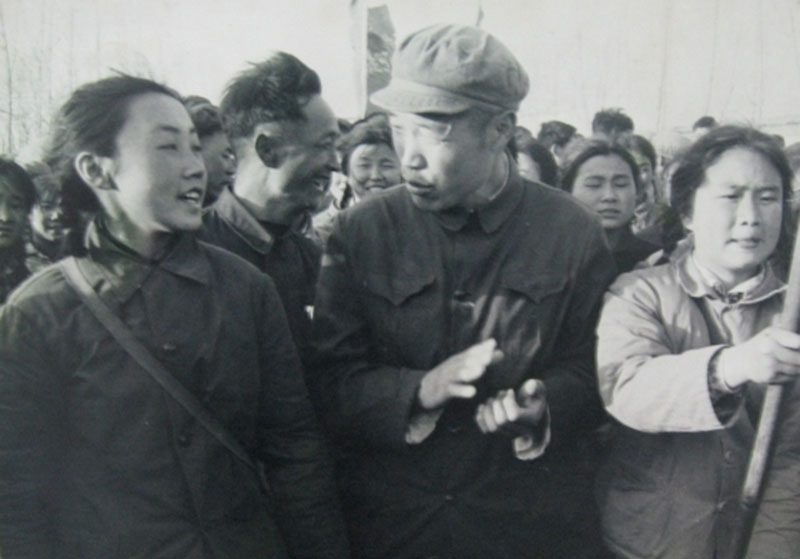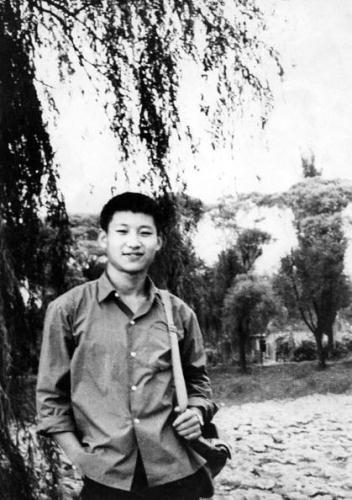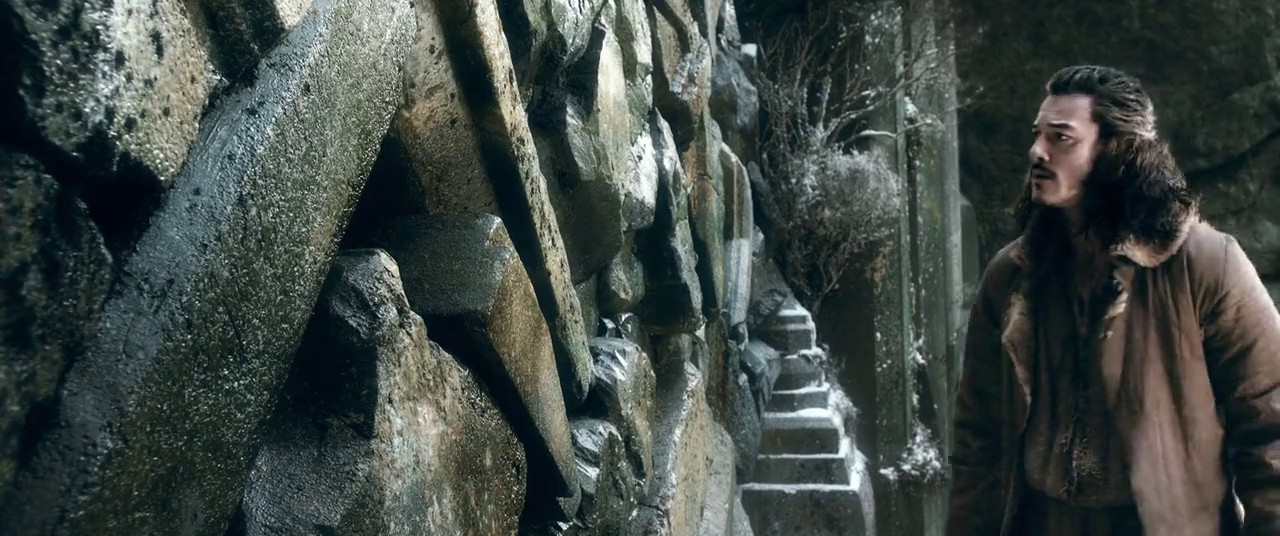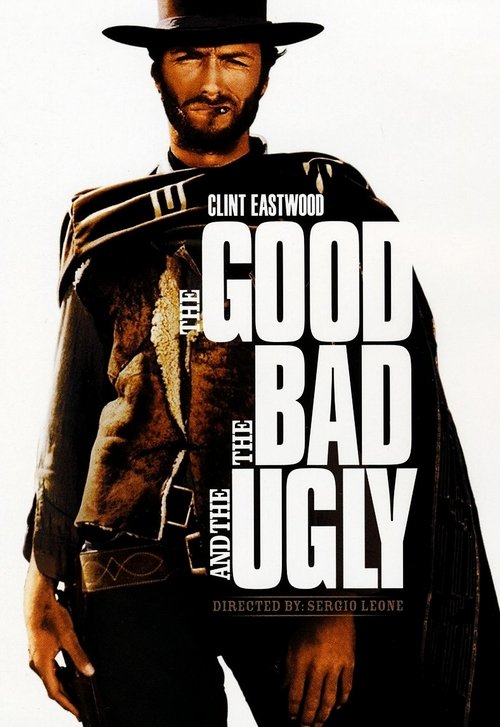Note: Citations are based on reference standards. However, formatting rules can vary widely between applications and fields of interest or study. The specific requirements or preferences of your reviewing publisher, classroom teacher, institution or organization should be applied. The Cultural Revolution is not a student movement, which broadly means a grassroots movement from college or possibly high school age young adults. It was instead a propaganda campaign that targeted children, like the Hitler Youth. During the Cultural Revolution, millions of Chinese school students were taken from the cities and sent to the remote countryside to be reeducated by peasants. During the Cultural Revolution over 14 million Chinese high school graduates were sent from the cities to live and work in the countryside. They were known as zhiqing 'educated youth. Chinas Cultural Revolution Amy Freedman Department of Government Franklin and Marshall College independent thought was to be extinguished. Mao distrusted the urban, educated elite, and these o He thought it a shame that the youth of China had not had the opportunity to fight CULTURAL REVOLUTION. The Great Proletarian Cultural Revolution ( ), as the Cultural Revolution was officially known, was a 10year social political movement initiated to strengthen Maoism in China by eliminating capitalist, feudalistic and cultural elements through an ideological campaign aimed at reviving revolutionary spirit and purging the country of impure elements. In the cultural arena, educatedyouth writers, such as Tie Ning, Liang Xiaosheng, Wang Anyi, and Han Shaogong, were much more competitive than the rural writers at the same age. Chinas Up to the Mountains and Down to the Countryside Movement had its origins in the mid1950s, but only truly took off several years prior to the Cultural Revolution ( ). From 1962 to 1979, over 17 million urban educated youth () were dispatched to the countryside, 14 million of which were sent during the Cultural Revolution period. Transcript of State of Education During the Cultural Revolution. China: Youth and the Cultural Revolution Links International Journal of Socialist Renewal. Links International intellectuallaborer The narrator is an Educated Youth; they have come down to the countryside; sent to cut down trees be reeducated. Part of Maos strategy in the Cultural Revolution was the rustification of educated youth () in sending former Red Guards and urban youth into the countryside to learn from the farmers. The Cultural Revolution played out across China for 10 long years, ending only after Mao Zedongs death and the Gang of Fours arrest in 1976. The Gang of Four Maos wife Jiang Qing, Zhang Chunqiao, Yao Wenyuan and Wang Hongwen were branded an antirevolutionary clan. In December 1968, Mao Zedong, then leader of China, gave a directive that it is necessary for educated youth in cities to work in the countryside. Since then, a largescale movement of students going to the mountain areas and the countryside had been carried out throughout the country. The Cultural Revolution and Freedom of Speech Hu Ping. Afterwards, they were all sent to the countryside and became known as the educated youth generation. The old three classes were born in the new society, and grew up under the red flag. When the Cultural Revolution started, I, too, had hoped to transform myself and the world. During the Chinese Cultural Revolution, Maos famous political slogan The times have changed, men and women are the same (, ) asserted that men and women were equal in political consciousness and physical strength. However, the slogans seeming emphasis on. From 1969 to 1975, President Xi Jinping lived and worked in the village as an educated youth during the cultural revolution ( ) when he was ages 16 to 23. The Cultural Revolution or as it is known as the Great Proletarian Cultural Revolution (Clark, 2008) was a socio political event that began in the Peoples Republic of. Chinas Cultural Revolution, Explained. educated young people from the cities were sent to the countryside to work on farms. Roderick MacFarquhar on the Cultural Revolution and China. Educated urban youth of China (Chinese: ); a special term addressed to the urban youth during the Cultural Revolution in the middle 1960s and middle 1970s; they were sent to mountainous areas or farming villages, so that they could learn from the workers and farmers there. The Cultural Revolution was a gain for China and the world as it proved a lesson to revolutionary thinkers on combating liberalism and the continuation of class struggle even within a. Called upon China's youth in order to purge the impure elements of the society and revive the revolutionary spirit that had led to victory in the civil war 20 decades earlier and the formation of the Peoples Republic of China The Educated Youth During the Cultural Revolution, the Communist Party instituted the Down to the. First, it was ideologically motivated, intended to train successors to the revolution, reeducate Chinas youth, and reduce the three major differences in Chinese society (between industry and agriculture, city and countryside, and mental and manual labor) (Bonnin, p. A look at how The New York Times covered events in China in 1966, the first year of the Cultural Revolution. Lu I was born in 1985 in a village in Nantong, Jiangsu Province. CHILDREN OF THE CULTURAL REVOLUTION: THE STATE AND THE LIFE COURSE IN THE PEOPLE'S REPUBLIC OF CHINA Xueguang Zhou Liren Hou Duke University Duke University Educated Youth and The Cultural Revolution in China. by Singer, Martin and a great selection of similar Used, New and Collectible Books available now at AbeBooks. Two childhood friends met and then grew apart in the Chinese city of Guangzhou as the Cultural Revolution was at its height. as an educated youth one year before the outbreak of the Cultural. For the entire decade of the Cultural Revolution, schools in China did not operate; this left an entire generation with no formal education. All of the educated and professional people had been targets for re. Give a warm sendoff to educated youth who go up the mountains and down to the villages to wage revolution, 1975 Despite the negative experiences of many, the government reintroduced a reallocation program in the 1980s an elective one, this time. Amboseli National Part (Kenya) China Intellectual life. Educated youth and the cultural revolution in China Martin Singer. The Cultural Revolution, formally the Great Proletarian Cultural Revolution, was a sociopolitical movement in China from 1966 until 1976. Launched by Mao Zedong, then Chairman of the Communist Party of China, its stated goal was to preserve 'true' Communist ideology in the country by purging remnants of capitalist and traditional elements from Chinese society, and to reimpose Mao Zedong. The Cambodian Communists, known as the Khmer Rouge, were allied with the Chinese Communists, and when they reached power, in the mid1970's, they carried out a Cultural Revolution of their own, one that was more violent than the Chinese Cultural Revolution. Their success, in turn, helped new educatedyouth practitioners enter the cultural industry. In 1996, Tie Ning was elected Vice President of the China Writers Association, and, in 2006, became the youngest and first female president of the association. The lost generation: the rustication of Chinas educated youth ( ), by Michel Bonnin, translated by Krystyna Horko, Hong Kong, chinese university of Hong sought to rebuild order and stability out of the chaos occasioned by the Proletarian Cultural Revolution. the rustication of Chinas educated youth ( ), by. Known as zhiqing, or educated youth, these young people were a mixture of those who volunteered to go to work and those who were forced to go there during the cultural revolution ( ). Under a directive from Mao Zedong, then leader of China, the movement of going to mountain areas and the countryside set off on December 12, 1968. Berrys book on eightynine relatively neglected feature films made in the Peoples Republic of China between 1976 and 1981 (1) is a focused contrast to Huangs assertion of the overwhelming importance of the Cultural Revolution to the whole of contemporary Chinese literature. Enter your mobile number or email address below and we'll send you a link to download the free Kindle App. Then you can start reading Kindle books on your smartphone, tablet, or computer. It is very necessary for the educated youth to go to the countryside and undergo reeducation by the poor peasants, declared Mao Zedong, the man who led Chinas communist revolution in. The Cultural Revolution had a massive impact on China from 1965 to 1968. The Cultural Revolution is the name given to Maos attempt to reassert his beliefs in China. Mao had been less than a dynamic leader from the late 1950s on, and feared others in the party might be taking on a leading role that weakened his power within the party and the country. China's Cultural Revolution: portraits of accuser and accused It was a time when pupil turned on teacher, when friend turned on friend Now artist Xu Weixin has painted both victim and perpetrator. Most of the 14 million zhiqing, educated youth, whom he condemned to indefinite rural exile during the Cultural Revolution, had made their way back to the cities theyd come from, among them Mancheng, Leying, Yang Shaoquan, Ruocheng and Zhengqi. China: Cultural Revolution Chinese Cultural Revolution poster showing Chairman Mao Zedong above an adoring crowd of Red Guards, soldiers, and workers. World History ArchiveAlamy The movement quickly escalated; many elderly people and intellectuals not only were verbally attacked but were physically abused. China: Youth and the Cultural Revolution. The psychological effects of the Cultural Revolution on China's youth may best be discerned from a survey of the often excellent and revealing memoir literature that has come out of China, particularly since the 1980s. [32 Educated Youth in the Communes in Mark Slden (ed. Chinas socalled educated youth, or zhiqing, have played an interesting role in modern Chinese history. The term generally recalls those millions of young people with secondary or university educations who left Chinas cities to labor in the countryside beginning in 1953, and especially during the Cultural Revolution ( ). Although there were many problems in the main citys the rural and countryside areas life prospered during the Cultural Revolution as many educated youths who joined Maos movement and became a Red Guard moved to the rural areas. Educated Youth from the manufacturer. During the Cultural Revolution over 14 million Chinese high school graduates were sent from the cities to live and work in the countryside. Ou Nianzhong and Liang Yongkang, editors. Mao's Lost Children: Stories of the Rusticated Youth of China's Cultural by Laura Maynard. Rent and save from the world's largest eBookstore. Read, highlight, and take notes, across web, tablet, and phone. Educated youth and the cultural revolution in China. Michigan Papers in Chinese Studies 10. Ann Arbor, MI: The University of Michigan Center for Chinese Studies. The Cultural Revolution (May 1966 October 1976) was a political movement launched by Chinese leader Mao Zedong, with the express purpose of eradicating the bourgeois headquarters and.











